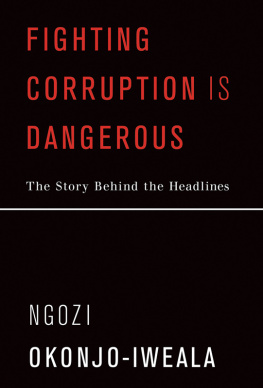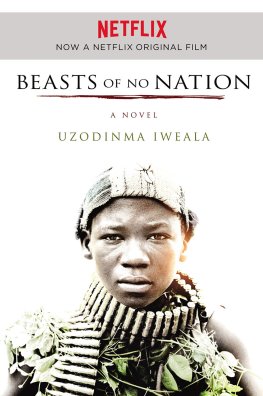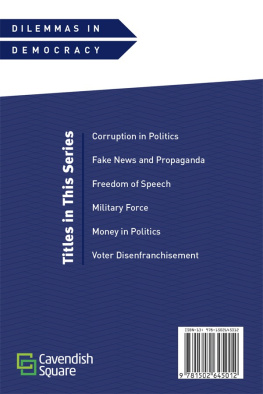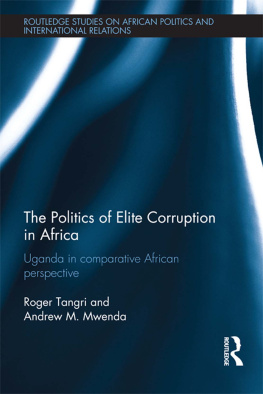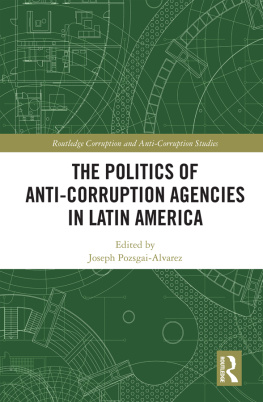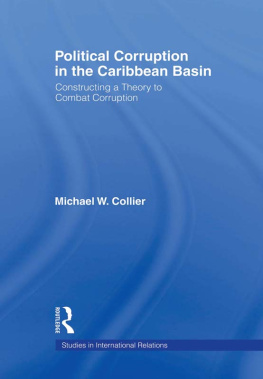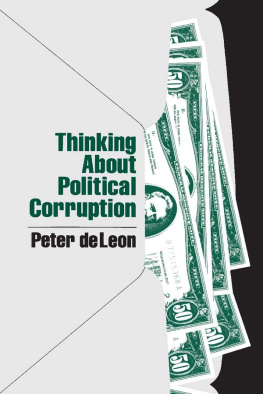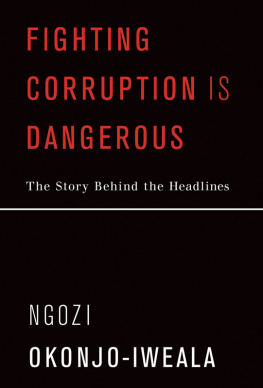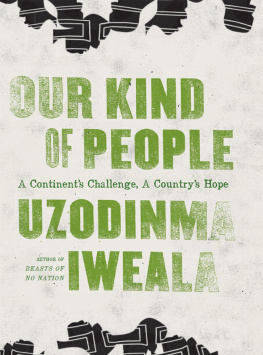Fighting Corruption Is Dangerous
The Story behind the Headlines
Ngozi Okonjo-Iweala
The MIT Press
Cambridge, Massachusetts
London, England
2018 Ngozi Okonjo-Iweala
All rights reserved. No part of this book may be reproduced in any form by any electronic or mechanical means (including photocopying, recording, or information storage and retrieval) without permission in writing from the publisher.
This book was set in Palatino LT Std by Toppan Best-set Premedia Limited. Printed and bound in the United States of America.
Library of Congress Cataloging-in-Publication Data
Names: Okonjo-Iweala, Ngozi, author.
Title: Fighting corruption is dangerous the story behind the headlines /
Ngozi Okonjo-Iweala.
Description: Cambridge, MA : The MIT Press, 2018. | Includes bibliographical
references.
Identifiers: LCCN 2017041524 | ISBN 9780262038010 (hardcover : alk. paper)
eISBN 9780262346757
Subjects: LCSH: Okonjo-Iweala, Ngozi. | Corruption--Nigeria. |
Nigeria--Economic conditions--1970- | Nigeria--Politics and
government--1993-2007. | Nigeria--Politics and government--2007- |
Nigeria--Economic policy.
Classification: LCC HC1055 .O39225 2018 | DDC 330.9669--dc23 LC record available at https://lccn.loc.gov/2017041524
ePub Version 1.0
This book is dedicated to my mother, Kamene Okonjo, and my father, Chukwuka Okonjo.
Table of Contents
List of Tables
Guide
Preface
This was a difficult book to write. In writing it, I relived events, reread articles, and recalled conversations that brought back painful memories I would rather leave behind. I thought that when I left the Nigerian Ministry of Finance the second time, I would write a book on a second wave of real sector reforms in the Nigerian economya sequel to my first book, Reforming the Unreformable: Lessons from Nigeria (2012), which focuses on macroeconomic and structural reforms. I sat down to write a book about the work done in the Goodluck Jonathan administration to reform various sectors of the Nigerian economy and begin the much-needed diversification of the countrys nonoil sectors. I wanted to capture for a wider audience important points we had recorded in the handover notes that the Jonathan administration delivered to the new Muhammadu Buhari administration, in the hope that good practices could be built on to further the countrys development. Instead, events following my departure from office with the Jonathan administration in May 2015 led me to write this book, which is a more personal account of an important aspect of my work in governmentfighting corruption. There are three reasons for this.
The first is to make sense for myself and the many others who have asked me what was behind the attacks I suffered after leaving government. For one and a half years, I was the object of damaging accusations and lies in the media, on the Internet, and in a vicious whispering campaign at home. The lies and propaganda charged that I mismanaged the economy and even that I diverted and stole billions of dollars. They followed a pattern of attack I had been subjected to throughout the four years of my second term in office, but this time the intensity was unprecedented. It would be a disservice to Nigerians and the international community interested in the development of this important country not to tell the truth, supported by facts and figures, of what actually happened and the major efforts I and others undertook to fight corruption in Nigeria.
Second, although virtually every administration in Nigeria, including the Jonathan administration, has been accused of corruption, and there is a long history of this scourge predating the Jonathan administration, less is known of the efforts deployed to fight corruption. This book tries to capture part of this story based on my experience during the Jonathan administration.
Third, in the past several years, there have been so many stories of widespread public-sector corruption around the worldfrom Nigeria to South Africa, Brazil to Argentina and Venezuela, Ukraine to South Koreathat a direct account from someone who has lived the problem in her own country context, such as I have, might shed light on the perils, pitfalls, and successes of confronting corruption.
The corruption we fought against, which is described in detail in this book, ran the gamut from grand or political corruption to administrative corruption, as captured in the framework laid out by William Dorintinsky and Shilpa Pradhan in their 2007 paper, Exploring Corruption in Public Financial Management. Grand corruption (examined in chapters 3 and 5 of this book) is the large-scale transfer of public resources for private interests; political corruption (described in chapter 4) is influence peddling on resource allocations and projects that benefit the decision maker, friends and acquaintances, directing resources to special projects, and abuse of privileged information; and administrative corruption (described in chapter 6) is misappropriation and misuse of public funds, fraud, waste and abuse.
The book is not an exhaustive account of all the corruption we encountered or of all events that took place in the Jonathan administration. It focuses on the key flash points where I felt discomfort or was at risk physically and reputationally for the work being done. I hope it will give readers a good deal to reflect on and provide lessons for those seeking to stop corruption and enshrine transparency and good governance in their work.
Among those doing this work are finance ministers, especially those from developing countries, who often do a risky job and rarely speak out. They are frequently in the business of saying no to colleagues, cabinet members, civil servants, politiciansand even their boss, the president or prime minister. They are under constant pressure and are rarely liked, even if they are respected. For these reasons, their tenure in office is often short. Gordon Brown, the United Kingdoms longstanding and respected Chancellor of the Exchequer and former Prime Minister, himself a twelve-year veteran Finance Minister, once told me that the global average tenure for a Finance Minister is two years. I made it to three in my first stint and completed the four years of my second tenureseven very tough years.
Development practitioners will also find the book useful. They struggle with the dilemma of how to pursue development in environments where poor governance and corruption need to be confronted and checked. But rarely do they have a firsthand account of what it means to fight for transparency and good governance from within the system.
Finally, citizens and civil society organizations that have tried to expose and fight corruption will relate to the dangers and risks described in this bookthe physical and reputational threats and the bullying and harassment from the corrupt and politically motivated. Understanding the tools used by those who seek to entrench opaqueness and corruption as a way of lifefrom the attempts to force me to resign and leave the country, which I resisted, to the false accusations in the press of mismanagement and siphoning of moniesis an important step in achieving transparency and good governance.
Note
William Dorintinsky and Shilpa Pradham, Exploring Corruption in Public Financial Management, in
The Many Faces of Corruption: Tracking Vulnerabilities at the Sector Level, edited by J. Edgardo Campos and Sanjay Pradhan, 267294. Washington, DC: World Bank, 2007.
Acknowledgments
Fighting Corruption Is Dangerous: The Story behind the Headlines is not the book I intended to write. But when I sat down with my laptop, what came out was an account of my mothers ordeal at the hand of kidnappers and their demand that, for her to be released, I had to resign my position as Finance Minister and leave Nigeria. I followed this account with notes about my encounters with the corruption that is pervasive within a certain segment of Nigerian government and society. It was my husband, Ikemba, who insisted that you have to put all this together into something people can read. You owe it to your mother. I am grateful to him for his insistence and his pressure on me to write a few lines every day until the book was done. The book is dedicated to my mother, Kamene Okonjo, and my father, Chukwuka Okonjo, because theyespecially my motherare the inspiration and the instigation for it. I owe them too much to capture here, but I am grateful to God they are alive and of sound mind and can read the book.

